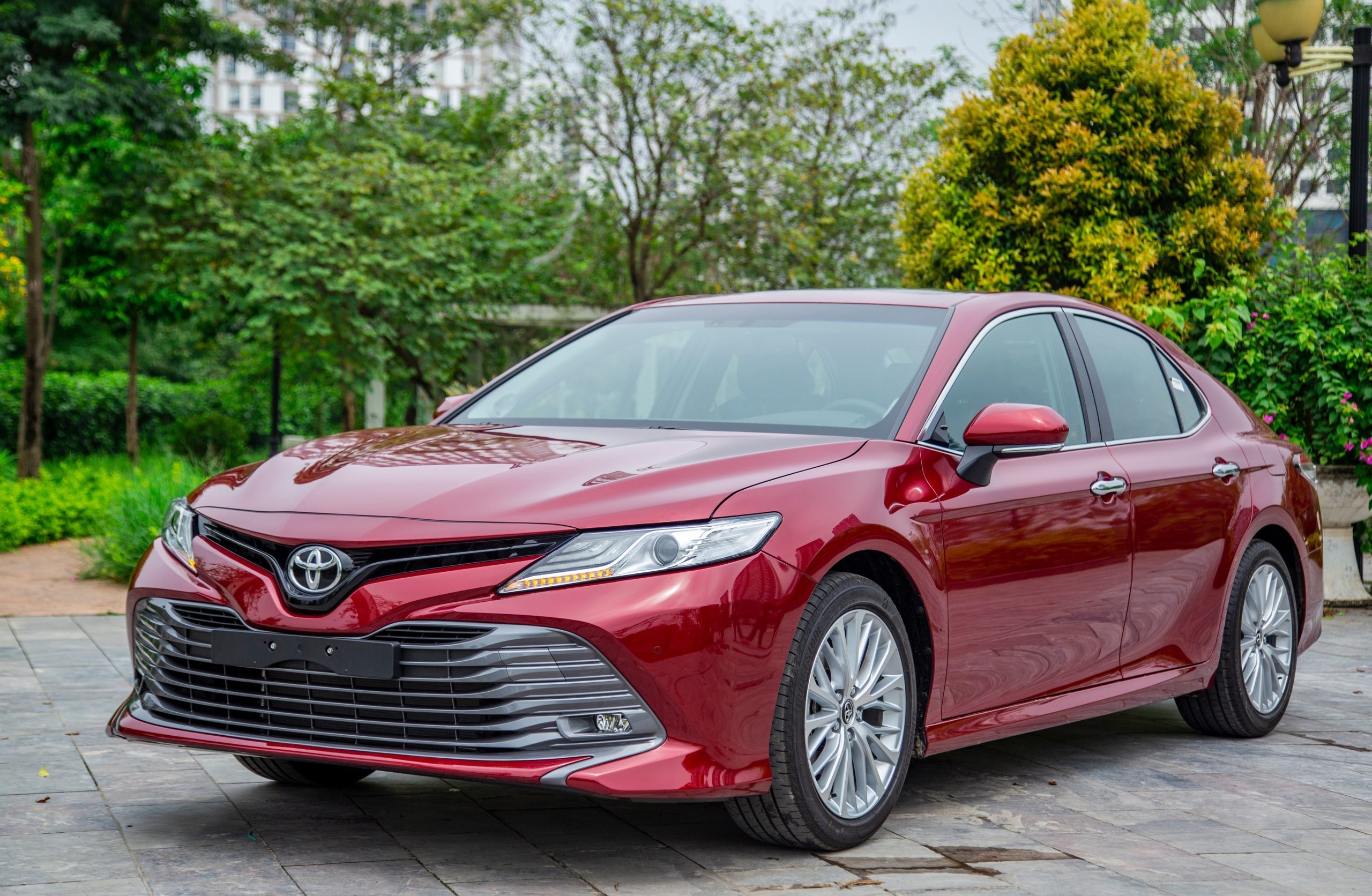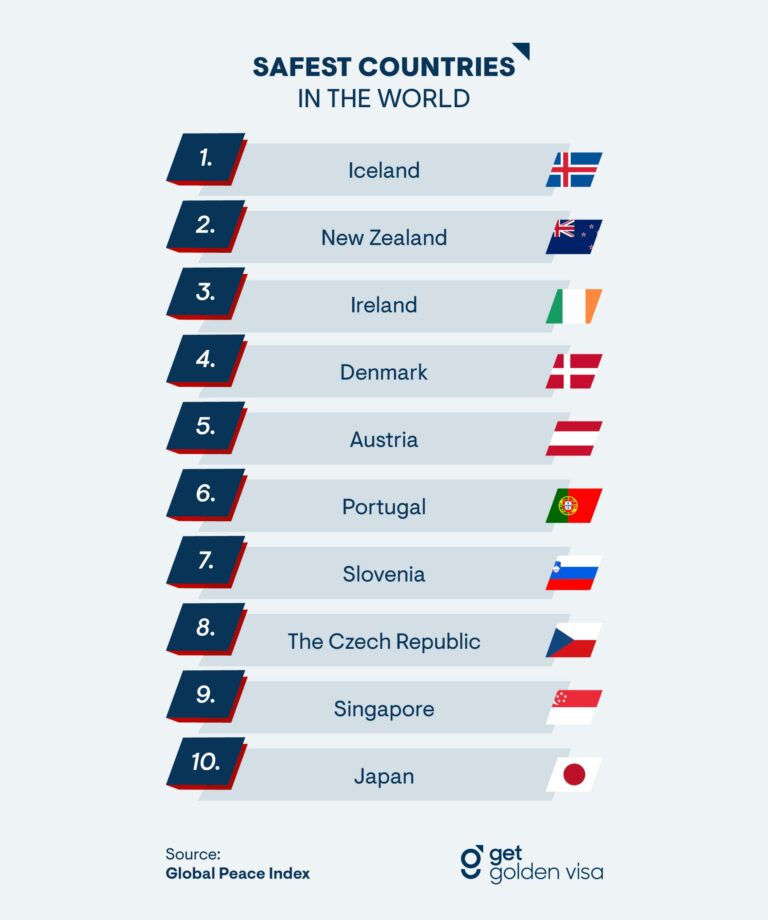Car Brands In India: Navigating a Dynamic Automotive Landscape
Car Brands In India: Navigating a Dynamic Automotive Landscape cars.truckstrend.com
India’s automotive market, the third largest globally, is a vibrant melting pot of innovation, consumer preferences, and fierce competition. From bustling city streets to rugged rural terrains, cars are not just a mode of transport but a symbol of aspiration and progress for millions. The landscape of car brands in India is incredibly diverse, featuring a robust lineup of homegrown champions alongside a formidable presence of international giants, each vying for a share of this rapidly expanding pie. Understanding these brands – their strengths, their offerings, and their strategic approaches – is crucial for anyone looking to make an informed decision in this exciting market. This comprehensive guide will delve deep into the world of car brands in India, exploring their impact, their products, and the key factors shaping their journey.
The Landscape of Car Brands in India: A Dynamic Ecosystem
Car Brands In India: Navigating a Dynamic Automotive Landscape
The Indian automotive sector is characterized by its sheer volume, rapid growth, and unique demands. A burgeoning middle class, increasing disposable incomes, and improving infrastructure have fueled an unprecedented demand for passenger vehicles. This demand isn’t monolithic; it spans from affordable, fuel-efficient hatchbacks to feature-packed SUVs and luxurious sedans, creating distinct segments that brands meticulously target.
The market is heavily influenced by factors such as fuel prices, government regulations (like emission norms and safety standards), economic policies, and evolving consumer tastes. Brands must constantly innovate, not just in terms of vehicle design and technology, but also in their sales strategies, after-sales service, and ecosystem development. The rise of digital sales, subscription models, and most notably, Electric Vehicles (EVs), are transforming the traditional dealership experience and opening new avenues for growth.
Homegrown Heroes: Indian Car Manufacturers Leading the Charge
India boasts several formidable indigenous car manufacturers that have not only carved out significant market shares but also earned the trust and loyalty of millions of customers.
Maruti Suzuki India Limited
The Unchallenged Market Leader: Maruti Suzuki is synonymous with Indian automobiles. Since its inception as a joint venture with Suzuki Motor Corporation, Japan, Maruti Suzuki has dominated the Indian market for decades.
- Strengths: Unparalleled market share, extensive sales and service network (reaching even remote areas), high fuel efficiency, low maintenance costs, and excellent resale value. Their "value for money" proposition resonates deeply with Indian consumers.
- Popular Models: The brand offers a vast portfolio spanning various segments, including entry-level hatchbacks like the Alto K10, popular compact cars like the Swift and Baleno, compact SUVs like the Brezza, and MPVs like the Ertiga.
- Strategy: Focus on mass-market segments, continuous product updates, and leveraging their vast service network to ensure customer satisfaction. They are also slowly but steadily entering the EV space and premium segments through NEXA dealerships.

Tata Motors
The Resurgent Indian Innovator: Tata Motors, a global automotive manufacturer with a rich legacy, has undergone a remarkable transformation in recent years, particularly in its passenger vehicle division.

- Strengths: Pioneering safety (many models achieve high GNCAP safety ratings), innovative design language (Impact 2.0 design philosophy), and aggressive leadership in the Electric Vehicle (EV) segment. Their vehicles are known for robust build quality and a comfortable ride.
- Popular Models: The Nexon (India’s best-selling SUV and EV), Punch (micro-SUV), Harrier and Safari (premium SUVs), and Tiago and Tigor (hatchback and compact sedan).
- Strategy: Emphasizing safety as a core differentiator, rapid expansion of EV portfolio, and offering feature-rich vehicles that cater to evolving urban demands. Tata Motors is seen as a brand that genuinely understands and caters to Indian road conditions and consumer aspirations.

Mahindra & Mahindra
The SUV Specialist and Rugged Innovator: Mahindra has a strong legacy in utility vehicles and SUVs, known for their ruggedness, off-road capabilities, and commanding road presence.
- Strengths: Expertise in SUV manufacturing, strong rural presence, and a focus on powerful engines and robust build quality. They’ve also embraced technology and design innovation in their newer models.
- Popular Models: The iconic Thar (off-roader), XUV700 (feature-packed premium SUV), Scorpio-N (new-gen rugged SUV), and the workhorse Bolero.
- Strategy: Reinforcing their SUV dominance, expanding into lifestyle segments, and introducing advanced features and safety technologies to appeal to a broader, urban audience.
Global Giants: International Brands Shaping the Indian Market
Beyond the Indian stalwarts, numerous international brands have established a significant footprint, bringing global design philosophies, advanced technology, and diverse product portfolios to the Indian consumer.
Hyundai Motor India
The Premium Mass-Market Contender: Hyundai has cemented its position as the second-largest car manufacturer in India, offering a blend of premium features, stylish design, and reliable performance.
- Strengths: Strong focus on design, feature-rich cabins, smooth engines, widespread service network, and high resale value. They cater to a wide range of budgets and preferences.
- Popular Models: The Creta (segment-leading mid-size SUV), Venue (compact SUV), i20 (premium hatchback), Verna (mid-size sedan), and Grand i10 Nios (compact hatchback).
- Strategy: Continual product launches, offering segment-first features, and focusing on customer experience through a strong dealership network. They are also investing heavily in EV technology for India.
Kia India
The Rapid Challenger: A subsidiary of Hyundai, Kia has made an incredibly strong and rapid entry into the Indian market, disrupting segments with its bold design and feature-laden offerings.
- Strengths: Distinctive, futuristic design, feature-packed vehicles (often segment-leading tech), strong marketing, and a youthful brand image.
- Popular Models: The Seltos (mid-size SUV), Sonet (compact SUV), and Carens (MPV).
- Strategy: Targeting specific segments with aggressive pricing and feature lists, building a strong brand identity, and leveraging shared platforms with Hyundai for cost efficiencies.
Toyota Kirloskar Motor
The Reliability and Resale Value Champion: Toyota is renowned for its legendary reliability, bulletproof build quality, and excellent resale value.
- Strengths: Unmatched reliability, low cost of ownership (over long term), strong after-sales service, and a focus on hybrid technology.
- Popular Models: The Innova Crysta (segment-defining MPV), Fortuner (premium SUV), and Urban Cruiser Hyryder (mid-size SUV with strong hybrid options).
- Strategy: Focusing on premium segments, leveraging hybrid technology, and maintaining their reputation for quality and durability.
Honda Cars India
The Refined Performer: Honda is known for its refined engines, comfortable rides, and quality interiors.
- Strengths: Smooth and fuel-efficient engines, comfortable cabin space, strong brand reputation for reliability.
- Popular Models: The City (iconic mid-size sedan), Amaze (compact sedan), and Elevate (mid-size SUV).
- Strategy: Consolidating focus on core segments, enhancing SUV portfolio, and maintaining their reputation for driving pleasure and build quality.
Volkswagen & Skoda Auto India
The European Engineering Duo: Both part of the Volkswagen Group, these brands bring German and Czech engineering prowess to India, emphasizing safety, driving dynamics, and build quality.
- Strengths: Robust build quality, high safety standards (often achieving 5-star GNCAP ratings), strong driving dynamics, and sophisticated European design.
- Popular Models: Volkswagen Virtus and Taigun; Skoda Slavia and Kushaq (all part of their India 2.0 strategy, focusing on localization).
- Strategy: Localizing production to make products more competitive, focusing on the mid-size sedan and SUV segments, and emphasizing driving pleasure and safety.
MG Motor India
The Tech-Forward Entrant: MG (Morris Garages) has quickly made a mark with its feature-loaded cars, connected car technology, and strong focus on electric vehicles.
- Strengths: Abundant features, large touchscreens, connected car tech, strong emphasis on EVs, and aggressive marketing.
- Popular Models: The Hector (mid-size SUV), ZS EV (popular electric SUV), and Astor (compact SUV).
- Strategy: Differentiating with technology and features, building a strong EV portfolio, and providing a premium ownership experience.
Renault India & Nissan India
The Value-for-Money Alliance: Operating as an alliance, Renault and Nissan have focused on specific segments, primarily compact SUVs and budget-friendly offerings.
- Strengths: Value-for-money propositions, appealing designs in their respective segments.
- Popular Models: Renault Kwid (entry-level hatchback), Kiger (compact SUV); Nissan Magnite (compact SUV).
- Strategy: Concentrating on high-volume, competitive segments with aggressive pricing and feature sets.
Luxury Brands
Brands like Mercedes-Benz, BMW, Audi, Volvo, Land Rover, and Porsche cater to the high-end luxury segment, offering premium performance, exquisite craftsmanship, and advanced technology. They represent the pinnacle of automotive engineering and status in India.
Key Considerations When Choosing a Car Brand in India
Selecting a car is a significant investment, and for Indian consumers, several factors weigh heavily in the decision-making process:
- Budget and Value for Money: This remains paramount. Consumers meticulously compare features, performance, and price points to ensure they get the most bang for their buck.
- Fuel Efficiency: Given volatile fuel prices, mileage (ARAI-certified or real-world) is a major deciding factor, especially for daily commuters. The shift towards alternative fuels like CNG and EVs highlights this focus.
- After-Sales Service and Network: A widespread, reliable, and affordable service network is crucial. Brands like Maruti Suzuki and Hyundai excel here, building immense customer trust.
- Resale Value: For many, a car is an asset, and its resale value is an important financial consideration for future upgrades.
- Safety Features: There’s a growing awareness and demand for safer cars. GNCAP (Global NCAP) ratings are increasingly influencing purchase decisions, pushing manufacturers to offer more standard safety features.
- Features and Technology: Modern buyers seek advanced infotainment systems, connectivity features, driver-assistance systems (ADAS), and creature comforts.
- Brand Reputation and Reliability: A brand’s history of reliability, customer satisfaction, and perceived quality plays a significant role in building trust.
- Driving Dynamics and Comfort: While subjective, factors like ride quality, handling, and cabin comfort are important for long-term ownership satisfaction.
The Rise of Electric Vehicles (EVs) and Future Trends
The Indian automotive market is at the cusp of a major transformation with the rapid adoption of Electric Vehicles (EVs). Supported by government incentives (like the FAME II scheme), growing environmental awareness, and rising fuel costs, EVs are gaining traction.
- Tata Motors has emerged as the clear leader in the passenger EV segment, with models like the Nexon EV and Tiago EV dominating sales.
- Other brands like MG Motor, Hyundai, Mahindra, and Kia are also aggressively expanding their EV portfolios, introducing a range of electric SUVs and hatchbacks.
- Challenges: Despite the growth, challenges remain, including the need for robust charging infrastructure, higher upfront costs compared to ICE vehicles, and range anxiety among consumers.
- Future Outlook: The trend towards sustainable mobility is irreversible. We can expect more diverse EV models, localized battery production, rapid expansion of charging networks, and potentially hydrogen fuel cell vehicles in the long term. The market will also see increased focus on connectivity, autonomous driving features, and subscription-based ownership models.
Challenges and Opportunities for Car Brands in India
The Indian automotive market, while promising, presents unique challenges and opportunities:
- Challenges: Intense competition from both domestic and international players, volatile fuel prices, stringent emission norms (BS6), supply chain disruptions (e.g., semiconductor shortages), and the need for continuous innovation to meet evolving consumer demands. Infrastructure development also needs to keep pace with vehicle growth.
- Opportunities: A vast and growing population with increasing disposable incomes, a young demographic eager for new technologies, significant potential in the rural and semi-urban markets, and the massive opportunity presented by the EV transition. Digitalization of sales and service also offers new avenues for engagement.
Practical Advice and Actionable Insights for Car Buyers
For anyone looking to buy a car in India, here’s some practical advice:
- Define Your Needs Clearly: Before looking at brands, list your priorities: budget, daily commute distance, family size, usage (city/highway/off-road), desired features, and fuel type preference (petrol, diesel, CNG, electric).
- Thorough Research is Key: Read reviews from multiple sources (automotive journalists, user reviews), compare specifications of competing models, and check safety ratings (GNCAP).
- Test Drive Extensively: Don’t just take one spin. Test drive multiple models from different brands that fit your criteria. Pay attention to ride comfort, handling, engine performance, visibility, and ease of use in traffic.
- Consider Total Cost of Ownership (TCO): Look beyond the ex-showroom price. Factor in insurance, registration, regular service costs, spare part availability and cost, and fuel efficiency.
- Evaluate After-Sales Service: Speak to existing owners about their service experiences. A reliable and accessible service network is crucial for peace of mind.
- Check Resale Value: Websites and market analysts can provide insights into a car model’s potential resale value.
- Don’t Be Brand-Blind: While brand reputation is important, evaluate individual models based on your specific needs. A brand might excel in one segment but be average in another.
- Negotiate: Always negotiate on price, accessories, and extended warranties.
Car Brands In India: Key Information and Price Overview
Here’s a table summarizing key information about major car brands in India, including their typical starting ex-showroom price ranges for popular models. Please note that prices are approximate (Ex-showroom, Delhi) and subject to change.
| Brand Name | Origin | Key Characteristics | Popular Models (Approx. Starting Ex-showroom Price) | Market Position / Target Segment |
|---|---|---|---|---|
| Maruti Suzuki | India / Japan | Fuel Efficiency, Reliability, Wide Service Network | Alto K10 (₹3.99 L), Swift (₹6.24 L), Brezza (₹8.29 L) | Market Leader, Mass Market, Value-for-Money |
| Hyundai | South Korea | Premium Features, Stylish Design, Strong Service Network | Grand i10 Nios (₹5.92 L), Creta (₹11.00 L), Venue (₹7.94 L) | Strong #2, Premium Mass Market, Tech-forward |
| Tata Motors | India | Safety Focus, Distinctive Design, EV Leader | Tiago (₹5.60 L), Punch (₹6.13 L), Nexon (₹8.15 L) | Rising Indian Challenger, Safety & EV Pioneer |
| Mahindra & Mahindra | India | SUVs, Ruggedness, Off-road Capability, Innovation | Thar (₹11.35 L), XUV700 (₹14.01 L), Scorpio-N (₹13.60 L) | SUV Specialist, Robust & Feature-rich |
| Kia | South Korea | Bold Design, Feature-rich, Rapid Growth | Sonet (₹7.99 L), Seltos (₹10.90 L), Carens (₹10.45 L) | Fast-growing, Youthful, Feature-packed, Design-centric |
| Toyota Kirloskar | Japan | Legendary Reliability, High Resale Value, Hybrid Tech | Glanza (₹6.86 L), Innova Crysta (₹19.99 L), Fortuner (₹33.43 L) | Premium MPVs/SUVs, Durability, Long-term Value |
| Honda Cars | Japan | Refined Engines, Quality Interiors, Smooth Ride | Amaze (₹7.20 L), City (₹11.82 L), Elevate (₹11.58 L) | Quality, Performance, Sedan & Mid-size SUV Segments |
| Volkswagen | Germany | European Engineering, Safety, Driving Dynamics | Virtus (₹11.56 L), Taigun (₹11.70 L) | Premium Sedan/SUV, Driving Enthusiast, Build Quality |
| Skoda | Czech Republic | Premium Feel, European Design, Driving Dynamics | Slavia (₹11.63 L), Kushaq (₹11.89 L) | Premium Sedan/SUV, Driving Enthusiast, Sophisticated |
| MG Motor | China / UK | Feature-packed, Connected Tech, Strong EV Focus | Hector (₹14.95 L), Comet EV (₹6.99 L), ZS EV (₹18.98 L) | Tech-forward, EV-centric, Feature-rich, Value Proposition |
| Renault | France | Value-for-Money, Compact SUVs | Kwid (₹4.70 L), Kiger (₹6.00 L) | Budget-friendly, Compact SUV, Mass Market Appeal |
| Nissan | Japan | Compact SUV Focus, Value Proposition | Magnite (₹6.00 L) | Value-for-Money Compact SUV, Niche Player |
| Luxury Brands | Germany/UK/Sweden | Premium Segment, Performance, Prestige, Advanced Tech | Mercedes-Benz, BMW, Audi, Volvo (Starts from ₹45 L+) | High-end, Performance, Status Symbol, Exclusive Segment |
Note: Prices are approximate Ex-showroom Delhi for base variants and are subject to change based on location, variant, and ongoing offers. This table provides a general overview.
Frequently Asked Questions (FAQ) about Car Brands in India
Q1: Which is the best car brand in India?
A1: There’s no single "best" brand as it depends entirely on individual needs and preferences. Maruti Suzuki and Hyundai are generally considered top choices for mass-market reliability and service. Tata Motors and Mahindra are leading in safety and EVs. Brands like Toyota are known for reliability and resale. The "best" brand is the one that best fits your budget, feature requirements, and long-term ownership expectations.
Q2: What factors should I prioritize when buying a car in India?
A2: Key factors include budget, fuel efficiency, after-sales service network and cost, safety ratings, resale value, desired features (infotainment, comfort), and the specific type of car (hatchback, sedan, SUV) that suits your usage.
Q3: Are Indian car brands better than foreign ones?
A3: Both Indian (Tata, Mahindra, Maruti Suzuki) and foreign brands have their strengths. Indian brands often excel in understanding local conditions, offering robust build quality suited for Indian roads, and competitive pricing. Foreign brands often bring advanced technology, refined engineering, and global design philosophies. Many foreign brands have also localized production significantly, making their products more competitive in India.
Q4: What is the future of electric cars in India?
A4: The future of EVs in India is very promising. With government support, increasing consumer awareness about environmental benefits and lower running costs, and more charging infrastructure development, EV adoption is expected to grow exponentially. Tata Motors is currently leading the charge, but many other brands are rapidly expanding their EV portfolios.
Q5: Which car brand offers the best after-sales service in India?
A5: Maruti Suzuki is widely regarded for its extensive and affordable service network, reaching even remote areas. Hyundai also has a strong and reliable service network. Brands like Toyota are known for their high quality of service, though often at a slightly higher cost.
Q6: What are the safest car brands in India?
A6: Brands like Tata Motors and Mahindra have consistently achieved high safety ratings (4 and 5 stars) from Global NCAP for many of their models (e.g., Nexon, Punch, Altroz, XUV700, Scorpio-N). Volkswagen and Skoda also prioritize safety, with many of their newer models scoring well. Consumers should always check the GNCAP ratings for specific models they are considering.
Conclusion
The Indian automotive market is a fascinating and ever-evolving ecosystem, shaped by the aspirations of millions and the strategic innovations of numerous car brands. From the dependable Maruti Suzuki and the safety-pioneering Tata Motors to the feature-rich Hyundai and Kia, and the reliable Toyota, consumers in India are spoilt for choice. The landscape is continuously being reshaped by technological advancements, particularly in the realm of Electric Vehicles, and by an increasing emphasis on safety and connectivity. For any prospective car buyer, understanding the unique propositions of each brand and meticulously evaluating them against personal needs will lead to a truly satisfying and informed purchase, driving India’s automotive story forward one car at a time.



